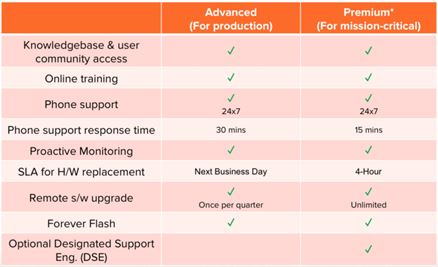Today, Pure Storage announced a major release of their Purity operating environment. (Pure also announced two new hardware models, which you can read about here.) The new release, Purity 4.0.0, adds multiple new features including a RESTful management API, and the much-anticipated remote replication. I’ll walk through the details of what’s new in the release below.
New Integration
Purity 4.0.0 adds a RESTful API for management and monitoring. This API allows Pure Storage arrays running Purity 4.0.0 to be integrated with:
- Cisco UCS
- IBM SVC
- Symantec Storage Foundation
Additionally, Purity 4.0.0 adds a Microsoft VSS Provider, allowing array snapshots of Microsoft apps to be application-consistent.
Enhanced FlashProtect
FlashProtect is the Purity functionality that provides data security. In the past this included the always-on encryption of all data-at-rest (using 256-bit AES) and roles-based access control.
In version 4.0.0, FlashProtect also includes a feature called Rapid Data Locking. This allows for a SmartCard-based instantaneous lock-down of an array. This feature was designed specifically for use in forward-deployed secure locations.
FlashRecover
FlashRecover is the most-anticipated new feature in Purity. It adds snapshost-based asynchronous replication. The replication can be bidirectional, meaning an array at Site A can replicate its data to an array at Site B, while simultaneously having the array at Site B replicate its data to the array at Site A.
FlashRecover offers multi-site support. Replication can be 1-to-1, 1-to-Many, or Many-to-1. This support makes the new models even more useful. For example, an organization with multiple branch offices could deploy FA-405 arrays at each remote location and have them all replicate to an FA-450 in a centralized data center.
The replication is IP-based and uses dedicated ports. All arrays in the FA-400 series have built-in 1GbE ports for use for replication. Customers also have the option of installing an optional 10GbE card for replication. Using dedicated ports means that replication traffic doesn’t share bandwidth with any host connections and vice versa, allowing each to function without affecting the other.
FlashRecover remote replication is optimized. After the initial instantiation of a replica, only new changes get copied. Since the Pure Storage arrays deduplicate and compress data upon ingestion, the data that needs to be replicated is already minimized as a side-effect, but to help things even further, FlashRecover deduplicates and compresses all data before sending it.
FlashRecover remote replication is secure. The data on the array is already encrypted at-rest, and FlashRecover ensures that all data is also encrypted in-flight.
FlashRecover is also very flexible. An array can support up to 5,000 active FlashRecover sessions (think of a session as a replication job for a particular volume). The replication works between any models in the FA-400 series, and an FC-connected array can replicate to an iSCSI-connected one, and either can replicate to an array using mixed connection modes.
FlashRecover adds automated policies for both local replicas (snapshots) and remote replication. These policies can be set on a per-volume basis and specify the schedule and frequency of the various replication jobs as well as the replica retention. For example, you could automate data protection for a volume by setting FlashRecover to take a snapshot every hour. You could have all of those snapshots retained for 3 days, and then retain only 4 snaps per day for the 7 days prior to that.
FlashRecover allows for the creation of consistency groups (although Pure Storage calls these “Protection Groups”). Consistency groups are used to ensure that applications that span multiple volumes can have the same replication policy applied to all volumes. Imagine a database application that stores its transaction logs on one volume, and the actual data on another. By creating a consistency group, administrators can ensure that any replicas (local or remote) will be application-consistent and will share the exact same timing.
Last, but perhaps most significantly, Pure Storage offers FlashRecover to customers at no additional cost, with no additional licenses needed. The functionality is built directly into Purity.
New Support Options
In addition to announcing Purity 4.0.0, Pure Storage announced new options for customer support. The new options bring Pure’s support offerings more in line with what customers are used to getting from other vendors.
Previously, Pure never explicitly addressed the idea of a software warranty. In the new model, Pure offers an explicit 90-day software warranty. This is on-par with software warranties offered by other vendors.
In the past, Pure had two customer support options, referred to as “Next Business Day Support” and “Four-Hour Support”. These are being phased out in favor of the new “Advanced” and “Premium” support options. The Premium option allows for the optional addition of a Designated Support Engineer (DSE) — a specific support engineer assigned to a customer site. The DSE option is only available in specific metropolitan areas.
The table below outlines the differences between Advanced and Premium support. Both options provide better support than the options previously offered.
The new support options will be available for any new systems purchased after 15 June. Existing systems will continue to receive their current level of support. Any support contracts renewing before 15 June will receive the same support option. Contracts renewing after 15 June will refresh to the new support options.
Availability
The availability of the various versions of Purity currently supported is as follows:
- 3.4.2 — released 25 April. This version is supported on both the FA-420 and FA-405 models.
- 3.4.3 — released today. This version is supported on all FA-400 series models, including the new FA-450.
- 4.0.0 — to be released mid-June. This version will be supported on all FA-400 series models.

